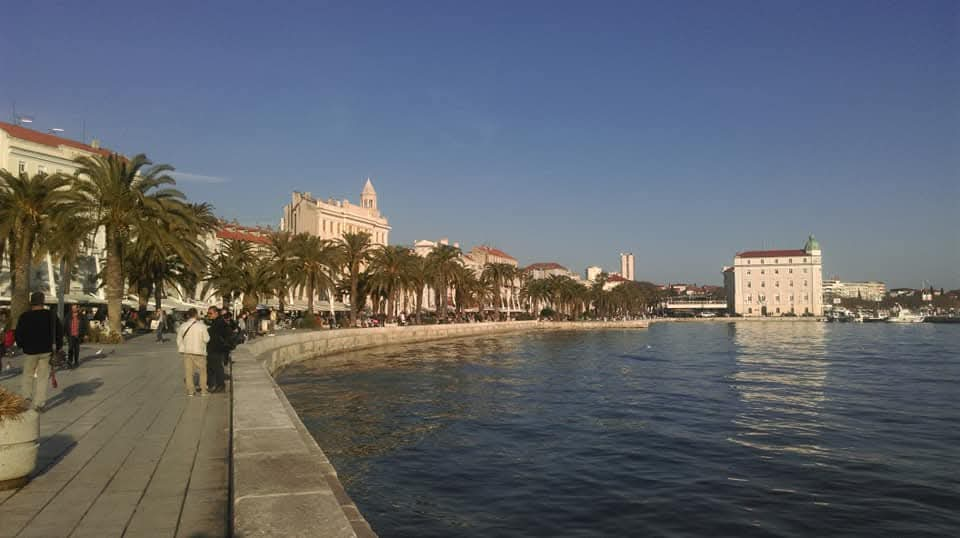Do yo qualify for a Digital Nomad Visa? Wouldn’t it be nice to just stay in a country for a year or so, have the option of creating your own work, and doing it from where you wanted to! I’ve done a lot of work as I travel. It has mainly been as an English Teacher or spiritual development coach, but I’m always looking for more way to earn money online and be location free!
The rise of remote work and online entrepreneurship has led many European countries to introduce Digital Nomad Visas, allowing foreign nationals to live and work within their borders while being employed elsewhere. These visas typically require proof of remote employment, a minimum income threshold, health insurance, and a clean criminal record. Below is an overview of several European countries offering such visas, along with their specific requirements and durations.
1. Portugal
Portugal offers two types of visas for digital nomads: a short-stay visa valid for up to one year and a long-stay visa leading to a residence permit valid for two years, extendable for three more years. Applicants must demonstrate a minimum monthly income of €3,280 and provide proof of accommodation and health insurance. Notably, Portugal’s Non-Habitual Resident (NHR) tax regime, which offered tax benefits to foreign residents, was discontinued at the end of 2023.
2. Spain
Spain’s Digital Nomad Visa is initially valid for up to 12 months and can be renewed, allowing digital nomads to reside in Spain for up to five years. Applicants must earn at least €2,646 per month, with additional income requirements for accompanying family members. Proof of remote employment, health insurance, and a clean criminal record are also necessary. After five years, holders may apply for permanent residency.
3. Croatia
Croatia grants a Digital Nomad Visa for up to one year, which is non-renewable. Applicants must have a minimum monthly income of €2,870 or savings of €34,440, along with proof of remote work, health insurance, and accommodation. Family members can be included in the application, provided additional financial requirements are met.

4. Estonia
Estonia, a pioneer in digital advancements, offers a Digital Nomad Visa valid for up to one year. Applicants need to demonstrate a monthly income of at least €4,500, along with proof of remote work, health insurance, and a clean criminal record. The application is processed within 30 days.
5. Greece
Greece provides a Digital Nomad Visa valid for one year, with the possibility of renewal. Applicants must have a minimum monthly income of €3,500, proof of remote employment, health insurance, a clean criminal record, and accommodation in Greece. They usually process the application within ten days.
6. Hungary
Hungary’s White Card allows digital nomads to reside in the country for one year, with the option to extend for another year. Applicants must earn at least €3,000 per month, provide proof of remote work, health insurance, and accommodation. The do not consider family unification in this visa, so each family member must apply on their own.
7. Italy
Italy introduced its Digital Nomad Visa in April 2024, valid for one year and renewable. Applicants must be highly skilled professionals. They must have a minimum monthly income of €2,333, proof of remote work, health insurance, a clean criminal record, and accommodation in Italy. The visa allows for family inclusion.

8. Cyprus
Cyprus offers a Digital Nomad Visa valid for one year, with the possibility of renewal. Applicants must have a minimum monthly income of €3,500, proof of remote work, health insurance, a clean criminal record, and accommodation in Cyprus. The visa allows for family inclusion, with increased income requirements for each additional family member.
9. Iceland
Iceland’s long-term visa for remote workers is valid for six months and is non-renewable. Applicants must have a minimum monthly income of $7,700, proof of remote work, health insurance, a clean criminal record, and a purpose of stay in Iceland. The application processing time is 3 to 4 weeks.
10. Latvia
Latvia introduced its Digital Nomad Visa in early 2022, allowing remote workers to reside in the country for one year, with the possibility of extension. Applicants must be citizens of OECD countries, have proof of remote work, health insurance, a clean criminal record, and sufficient funds.

